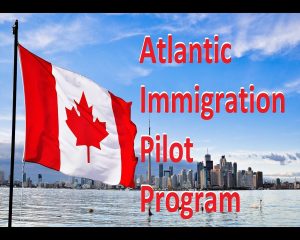Work experience only counts for Express Entry if it is considered “skilled” according to Canada’s occupation classification system.
When Immigration, Refugees and Citizenship Canada (IRCC) assesses your work experience, it looks at how much education is required of to do your job. Generally speaking, the more education and experience it takes to work in your position, the higher your occupational skill level will be. Canada currently analyzes a job’s skill level using the 2016 National Occupational Classification (NOC).
For economic-class immigration, IRCC generally uses the NOC to evaluate how the work experience of a given immigration candidate will support the mandate of the immigration program they are applying for. Economic-class immigration programs are specifically designed to fill job vacancies with foreign talent to support Canada’s labour market, and long-term prosperity.
When it comes to Express Entry, the specific occupation does not matter as much as the skill level. When assessing your application, IRCC will match your job duties with the NOC description to determine your occupation and whether or not it is skilled. There are five NOC skill levels described on the Canadian government website:
- Skill Type 0 (zero): management jobs, such as: restaurant managers, mine managers, and shore captains (fishing).
- Skill Level A: professional jobs that usually call for a degree from a university, such as: doctors, dentists, and architects.
- Skill Level B: technical jobs and skilled trades that usually call for a college diploma or training as an apprentice, such as: chefs, plumbers, and electricians.
- Skill Level C: intermediate jobs that usually call for high school and/or job-specific training, such as: industrial butchers, long-haul truck drivers, food and beverage servers.
- Skill Level D: labour jobs that usually give on-the-job training, such as: fruit pickers, cleaning staff, and oil field workers.
For the purposes of Express Entry, only jobs that fall under skill types 0, A, and B are considered “skilled.” You need skilled work experience to be eligible for one of the three Express Entry-managed immigration programs. How much work experience you need depends on which program you are applying for.
IRCC considers “full-time” to be equal to 30 hours per week. Over one year, this adds up to be 1,560 hours. You can meet this in a few different ways, by working full-time for a year or part-time. For part-time work, you can work more or less than 15 hours per week as long as it adds up to 1,560 hours. IRCC does not count any hours you worked above 30 hours per week. So, you cannot become eligible faster for working more hours.
Also, all work experience for the purposes of an Express Entry-managed program must be paid. Volunteer work, and unpaid internships do not count.
Work experience requirements for Federal Skilled Worker Program
To meet the basic eligibility criteria for the Federal Skilled Worker Program (FSWP) you need to meet work experience, language proficiency, and education requirements.
At minimum, you need at least one year of skilled work experience within the past 10 years. The work experience you use to qualify you for the program, your previous work experience has to match your primary occupation in your immigration application.
Once you have met the minimum eligibility requirements, IRCC assesses your application on a points system that is specific to the program. You need to score at least 67 out of 100 in order to pass. At least 15 of these points come from work experience.
To get points for your work experience, you need to have held a full-time job in a skilled occupation for at least one year. Again, it has to add up to 1,560 hours total. Part-time work counts as long as it adds up to the minimum number of hours within the 10 years before you apply.
Your work experience will count if it was in Canada or abroad, completed while you were studying or while being self-employed outside of Canada. Self-employment in Canada does not count.
To get the full 15 points, you need at least six years of eligible work experience. Having only one year of work experience will get you nine points. Two to three years is enough for 11 points, and four to five years equates to 13 points.
| Experience | Maximum 15 points |
|---|---|
| 1 year | 9 |
| 2-3 years | 11 |
| 4-5 years | 13 |
| 6 or more years | 15 |
You can also get an additional 10 points for “adaptability” if you have at least one year of full-time, skilled work experience in Canada.
Work experience requirements for Canadian Experience Class
The Canadian Experience Class (CEC) is for people who have work experience in Canada.
In order to meet the work experience requirement, you need to have worked full time for at least one year in Canada in a skilled occupation. This work experience may have been completed anytime within the three years before you apply for permanent residency through the CEC. Self-employed work and work that you did while studying in Canada does not count.
For the CEC, you also have to demonstrate a minimum language proficiency, among other eligibility criteria.
Work experience for Federal Skilled Trades Program
The Federal Skilled Trades Program (FSTP) is for skilled trades workers.
To fulfill the work experience requirement, you need at least two years of full-time work experience in a skilled trade within the five years before you apply. The equal amount of part-time work experience is also eligible, as long as it is paid.
You also need to meet the job requirements for the skilled trade on your application as set out in the NOC, except for needing a certificate of qualification. Plus, you need a valid job offer of full-time employment for at least one year, or a certificate of qualification in your skilled trade issued by a Canadian provincial, territorial, or federal authority.
Beyond the work experience, FSTP candidates also have to meet a minimum language proficiency, among other requirements.







